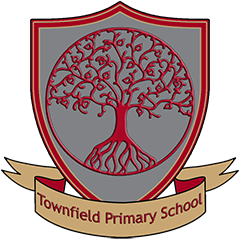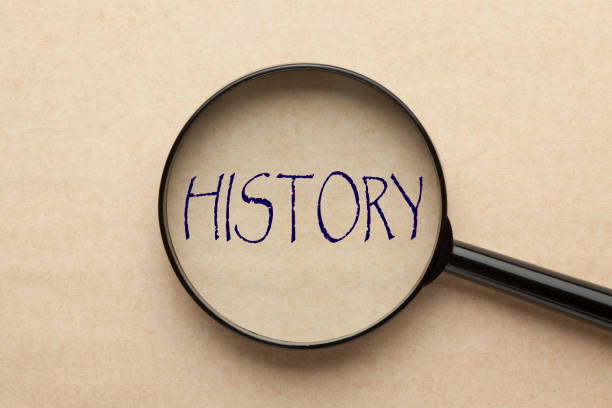History
The History curriculum offer follows the national curriculum in KS1 and KS2 and the EYFS Statutory Framework and Development Matters in the early years. The History curriculum is ambitious and designed to give all learners, particularly the most disadvantaged and those with special educational needs, the knowledge and cultural capital they need to succeed in life. Where required, pedagogy is adapted so that all pupils including disadvantaged pupils and those with SEND are on the same knowledge journey towards the same endpoints.
Our curriculum is carefully weighted with equal priority given to both substantive knowledge (people, dates and events) and disciplinary knowledge (how historians work and come to their conclusions). Clearly defined substantive knowledge end points are identified at the end at the end of the unit and disciplinary knowledge end points at the end of each key stage. Components (building blocks) are carefully sequenced so new knowledge builds on what has been previously taught and leads to the end points.
Key concepts for example 'empire', 'legacy', 'religion' and 'settlement' are covered and repeated throughout the curriculum. Vocabulary is also taught explicitly in every lesson. Key words and concepts are mapped out in the VOCUS document. There are also opportunities for developing reading in History.
In early years and KS1 plans are written following the end points and key concepts. This leads into the Pearsons' curriculum which is taught in KS2. This is enhanced with an artefact starter and a disciplinary task so children have opportunity to practice the key history disciplinary concepts e.g. historical significance, similarities and differences and change and continuity. Please see above for our 'Think Like a Historian' poster, which is used to scaffold the children as they make judgements about the past.
Review and retrieval is a key part of every lesson. Quick quizzes and knowledge organisers are used to support this.
Our pupils represent an urban area of Wirral and this is reflected through an inclusive, diverse curriculum which is supported through additional extra-curricular focuses on events such as Remembrance Day, Black History Month.
For further information on our curriculum intent, implementation and impact, please see our curriculum page .
See below the History curriculum overview for KS1 and KS2
The History curriculum is set out in the History End Points document.
See below for examples of the History curriculum at Townfield:
Autumn Term
Nursery: All About Me
Children will:
- Know vocabulary related to time e.g. when I was a baby, now I am older
- Know past events from their life such as when they were a baby


Reception: Guy Fawkes
In Autumn term, children will:
- Know how to order some events chronologically. Including things that happened before they were born.
- Know about figures and stories and events from the past e.g. Guy Fawkes, Titanic, Remembrance Day
- Know and use further vocabulary related to time e.g. when I was 3 years old, when my mum was a child, before I was born, 100 years ago, last week, last year.
![IMG_2471[1].JPG](/uploads/523/images/RJ: History/IMG_2471[1].JPG)
![IMG_2478[1].JPG](/uploads/523/images/RJ: History/IMG_2478[1].JPG)
![IMG_2477[1].JPG](/uploads/523/images/RJ: History/IMG_2477[1].JPG)
![IMG_2472[1].JPG](/uploads/523/images/RJ: History/IMG_2472[1].JPG)
Year 1: Queen Elizabeth II (Changes within Living Memory)
In this topic, children will:
- Know what toys, homes, shops, clothes and schools were like in the 1950s in comparison to today.
- Know that Queen Elizabeth was crowned in 1953 and how this compares to King Charles III coronation in 2023.

Year 2: Walter Tull
In this topic, children will:
- Know about Walter Tull's footballing and military achievements.
- Know the similarities and differences between football today and in the early 1900s.
- Know that Walter Tull suffered racism in the early 1900s and that racism continues to exist in the sport today.
- Know how WWI impacted on Walter Tull's life.

Year 3: Prehistoric Britain
In this topic, children will :
- Know which animals survived during the Ice Age.
- Know at least one era from the Stone Age.
- Know what homes were like in a Stone Age settlement.
- Know why bronze was used for tools and weapons.
- Know about Skara Brae and Stonehenge and what Historians can learn from places.

Year 4: Roman Empire and the Impact on Britain
In this topic, children will:
- Know how the Roman Empire became so successful
- Know how the Romans invaded Britain
- Know how Britain changed under the Romans
- Know how the Romans organised their towns
- Give reasons why the Roman Empire eventually fell.
.jpeg)
.jpeg)
.jpeg)
Year 5: Benin Kingdom (Non-European History)
In this topic, children will:
In this topic, children will:
- Know how the Benin Kingdom began
- Know what life was like for the Edo people in the Benin Kingdom
- Know what goods were traded between Benin and European countries
- Know what the Transatlantic Slave Trade was.
- Give examples of cultural artefacts from the Benin Kingdom.

Year 6: Industrial Revolution
In this topic, children will:
- Know about the class sytem in Victorian society
- Know why many people moved to cities during the Industrial Revolution
- Know what working and living conditions were like during the Industrial Revolution
- Know some problems with the voting system in the early 1800s
- Know key changes in cities before and after the Industrial Revolution.

Spring Term
Nursery - Celebrations
In Nursery, children have learnt about historical celebrations such as Diwali, Hanukkah, Christmas and Bonfire Night. The children have enjoyed immersing themselves in the history and culture, exploring new foods, stories and traditions. They especially liked Diwali and the story of Rama and Sita.
/Screen Shot 2022-03-22 at 20.48.51.png) Reception- Transport
Reception- Transport
In spring term, children will:
- Know about similarities and differences between past and present from photographs , artefacts and accounts e.g. transport, homes, schools.
- Talk about items from the past and compare them to the present.



Year 1 - The Great Fire of London
In this topic, children will:
- Know what London was like in 1666
- Know what fire fighting was like in 1666 in comparison with today
- Know key facts about The Great Fire of London
- Know that Samuel Pepys wrote a dairy about the Great Fire of London.
- Know how London changed after The Great Fire


Year 2 - Neil Armstrong and Amelia Earhart
In this topic, children will:
- Know about Amelia Earhart's achievements and why they are significant.
- Know about Neil Armstrong's achievements and why they are significant.

Year 3 - The Shang Dynasty
In this topic, children will:
- Know how the Shang Dynasty began
- Know who Fu Hao was and explain how we know about her
- Know how the Shang Dynasty ended
- Know how the Shang Dynasty created and used chinese writing.
- Explain what life was like for people of the Shang Dynasty.

Year 4 - Anglo Saxons
In this topic, children will:
- Know who the Anglo Saxons are and the reason they came to Britain
- Know what an Anglo Saxon village was like
- Know the heptarchy and how the Anglo Saxons organised Britain
- Know why the Anglo Saxon era was called The Dark Ages
- Know why Alfred was known as 'The Great'
Year 5 - Medieval Monarchs
In this topic, children will:
- Know how the death of Edward the Confessor led to the Battle of Hastings
- Know the events which lead to Thomas Beckett's death
- Know why Richard was referred to as 'The Lionheart'
- Know why John was known as 'Bad King John'
- Know what the feudal system is.


Year 6 - Civil Rights
In this topic, children will:
- Know key differences between 1950s America for Black and White people
- Know what Jim Crow laws & etiquette were
- Know what is meant by 'non-violent civil disobedience'
- Know why many people marched from Selma to Montgomery
- Know what caused the Black Lives Matter movement and why it is important.

Summer Term
Nursery
They have been exploring the history of their lives and how they have grown up and when they were younger they were babies.
Reception- Toys
In summer term, pupils will:
- Know and use further vocabulary related to time.
- Know about similarities and differences between past and present from photographs, artefacts and accounts e.g. transport, homes, schools.
- Know how to order some events chronologically. Including things that happened before they were born.
- Know about figures and stories and events from the past.



Year 1- Florence Nightingale
In this topic, children will:
- Know the difference between hospitals in the 19th Century and today.
- Know who Florence Nightingale was and how she improved nursing and hospitals in the 19th Century.
- Know how Florence Nightingale's ideas are still important today.
- Know who Mary Seacole was and why she was significant.
Year 2- Local History Liverpool
In this topic, children will:
- Know how Liverpool has changed over time
- Know ways the Albert Dock changed over time
- Know the importance of the Beatles to Liverpool
Year 3-Ancient Greece
In this topic, children will:
- Know =what a city state is and how they were ruled
- Explain what the Ancient Greeks believed in
- Know who Alexander The Great was and what made him a great leader
- Explain ways in which Ancient Greece still influence modern day
- Describe the roles of women and slaves in Ancient Greece.

Year 4- Vikings
In this topic, children will:
- Know who the Vikings were and how they attacked Lindisfarne
- Know the name of a Norse God
- Know why Alfred signed a treaty with Guthrum
- Know about Danegeld and whether it helped to keep the peace
- Know the differences between Viking and Anglo Saxon beliefs.
Year 5- British Civil Rights
In this topic, children will:
- Know the term civil rights and discrimination
- Know reasons why the Bristol Bus Boycott took place
- Know what caused the Grunwick Factory workers to strike
- Know how people protested against Section 28
- Know why the wheelchair warriors fought for their rights.
Year 6- Twentieth Century Conflict
In this topic, children will:
- Know the events which caused the beginning of WW1
- Know why so many lives were lost during WW1
- Know the impact of the Treaty of Versailles
- Know some of the main idea of Hitler's Nazi Party
- Know the factors which caused the beginning of WW2
 Townfield Primary School
Townfield Primary School




